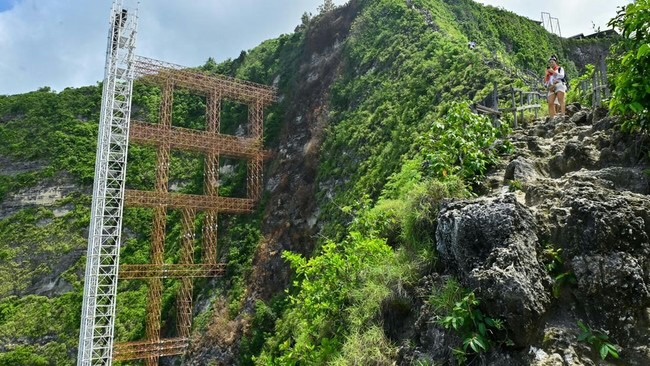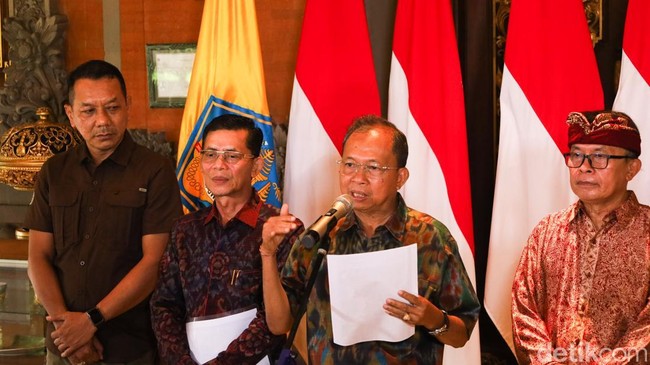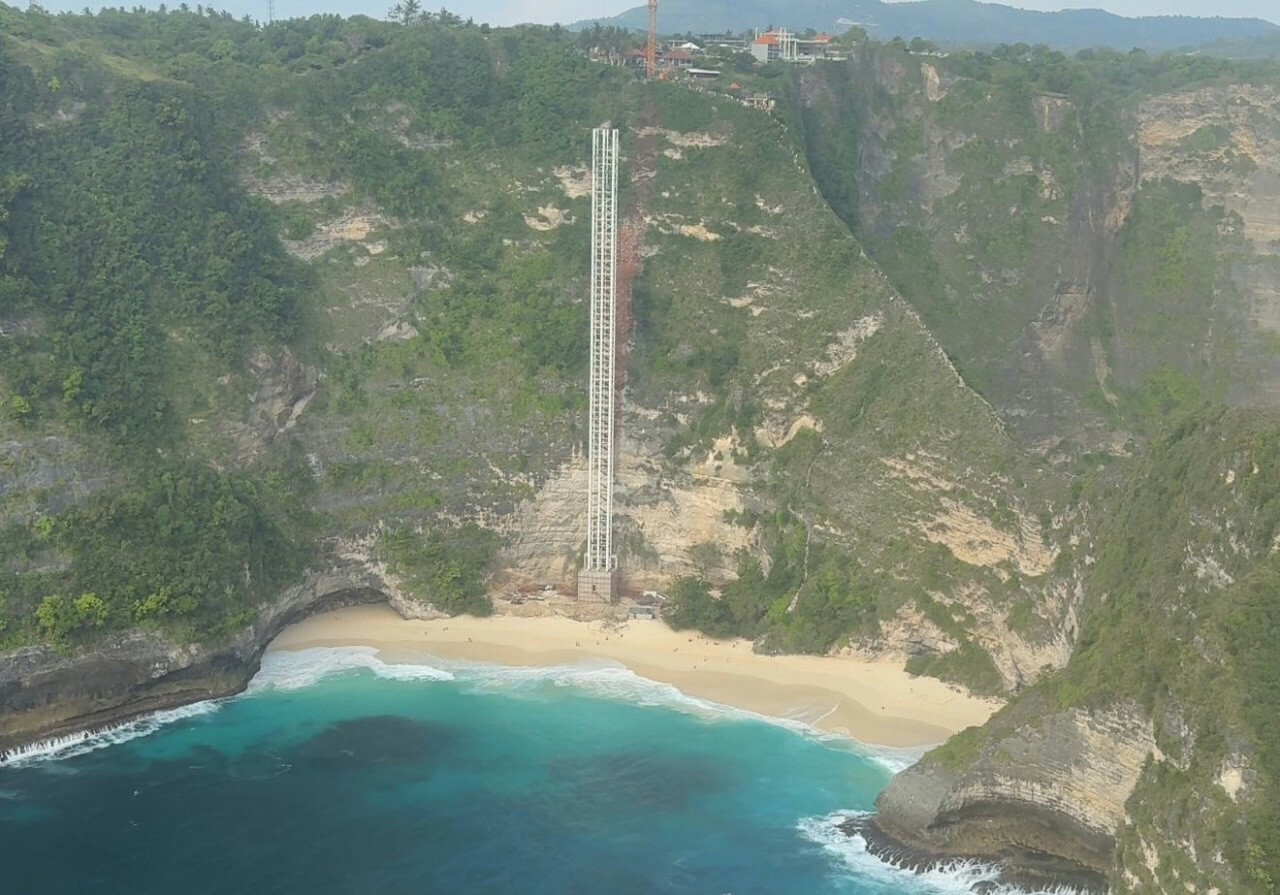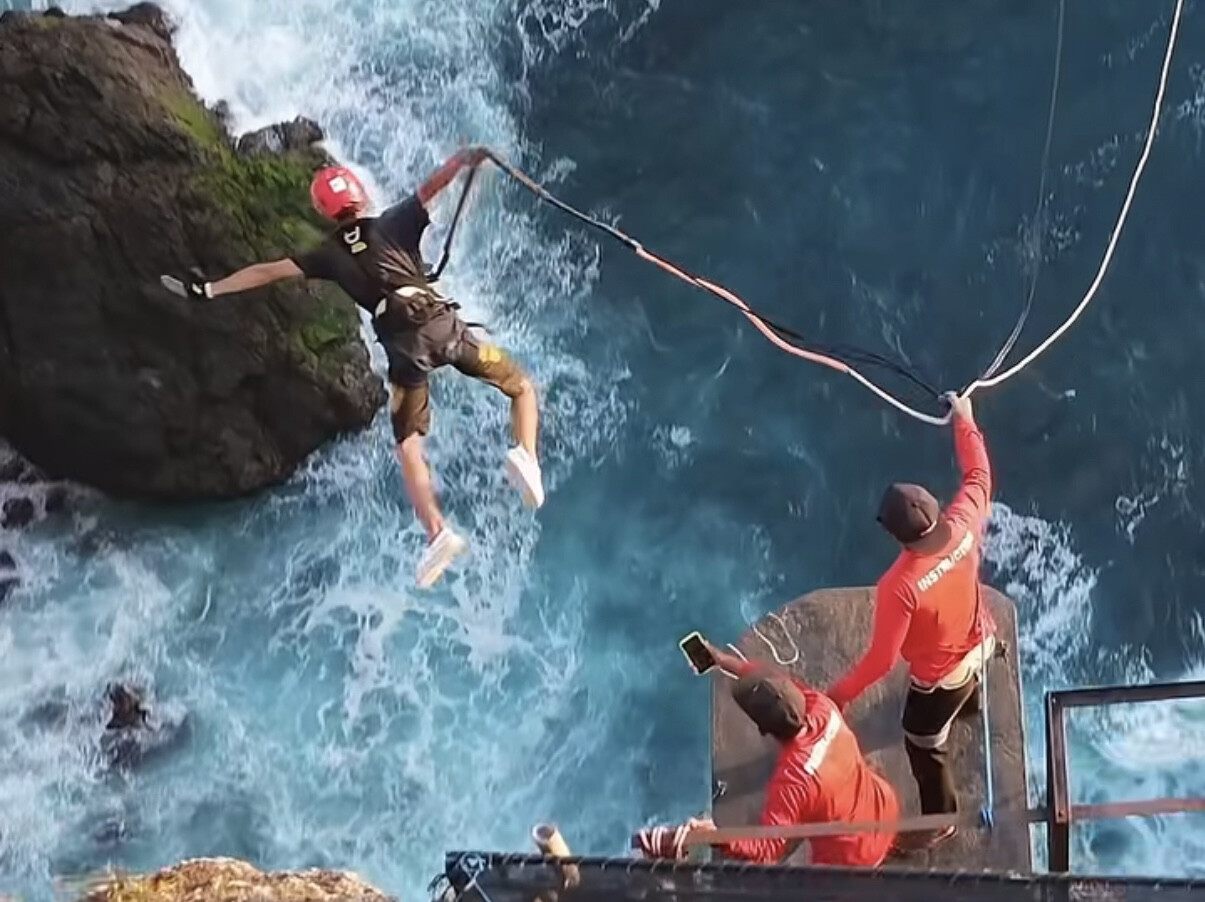The Governor of Bali, Wayan Koster, made a firm decision regarding one of the most controversial projects on the island of Nusa Penida.

During a press conference held on Sunday at the official residence, the regional head ordered an immediate stop to the construction and removal of the glass elevator structures at the famous Kelingking Beach.
The project, with a cost of 200 billion Indonesian Rupiah, implemented by PT Indonesia Kaishi Tourism Property Investment Development Group (also known as PT Bina Nusa Property), was found to violate numerous environmental and administrative regulations.

Ultimatum for the Investor: 6 Months to Dismantle. The authorities of Bali province intend to act decisively: the developer will receive three official written warnings. If the structures are not removed by the company within six months, the demolition will be carried out by the Bali provincial government together with the Klungkung district administration by force.
5 Major Violations: Why Close the Project Before It's Even Opened?
As explained by Wayan Koster, the elevator grossly violates the zoning rules outlined in Bali Province's Regional Ordinance No. 3 of 2020. During the inspection, five key violations were identified:
— Violation of the security zone: the object, covering an area of 846 sq m and a height of about 180 meters, is located directly in the cliff buffer zone, where permanent construction is prohibited.
— Lack of permission for shoreline use: the project does not have the governor of Bali's recommendation concerning the use of the coastal area and beach.

— Neglecting safety: there is no mandatory recommendation from the governor based on the rock cliff stability study.
— Issues with documents for foreign investors: validation of spatial use conformity (KKPR) for foreign capital (PMA) was not conducted.
— Encroachment into sea space: The foundation and piles of the structure are in the beach and sea zone. Meanwhile, the developer does not have the basic permit for the use of sea space (KKPRL), which is issued by the Ministry of Marine Affairs and Fisheries.
Not Only to Demolish, But Also to Restore What Has Been Disrupted
Demolishing what has already been built is not the only requirement from the authorities. The governor has obliged the developer to carry out a full reclamation of the area. The company is given three months after the demolition to restore the functions and condition of the area and return the cliffs of Kelingking Beach to their original state.
Wayan Koster emphasized that this decision is driven by concern for the island's future. The priorities are preserving the natural landscape, ecosystem, and Balinese culture, rather than making a profit at all costs.

"These measures are a confirmation that henceforth any form of violations by the stakeholders will not be tolerated. We must ensure quality and dignified tourism while preserving local wisdom," concluded the governor.
The head of Klungkung district, I Made Satria, refrained from detailed comments, noting that the decision is within the competency of the provincial authorities, but promised to ensure strict supervision of the order's implementation and to tighten control over the issuance of permits in the future.


You can add one right now!